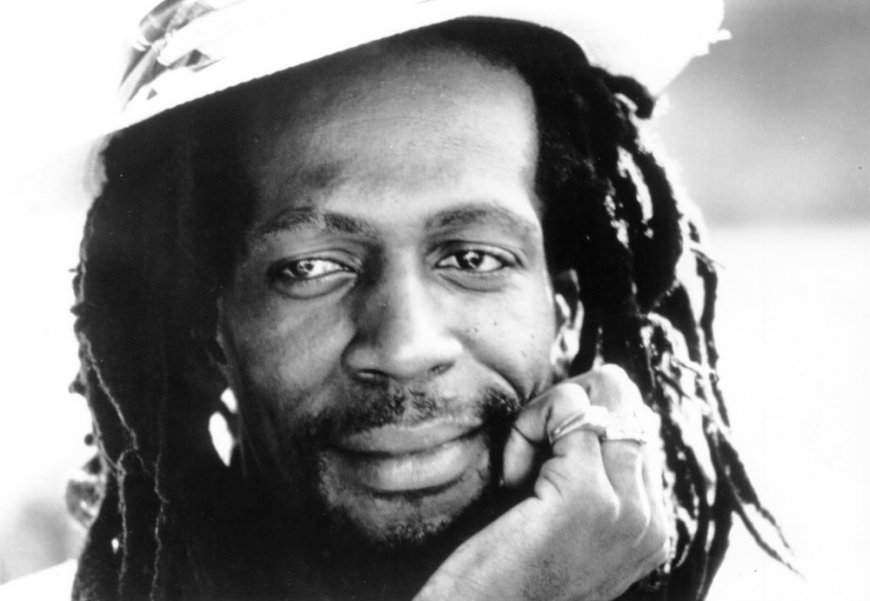The Life, Music, Legacy & Diverse Musical Influence of Reggae Legend Gregory Issacs
Examining His Collaboration with Gussie Clarke and the Rise of Lovers Rock Beyond the Lyrics while Exploring the Social and Political Messages in Gregory Isaacs' Music. From Kingston Streets to International Stages

Gregory Isaacs, a name synonymous with soulful vocals, captivating lyrics, and the smooth sounds of lovers rock reggae, remains an iconic figure in Jamaica's music scene and beyond. This article, brought to you by Pure Jamaica Media, taking you into the life and legacy of this legendary singer, exploring his musical journey, enduring impact, and continued relevance in today's world.
Born Gregory Anthony Isaacs July 15, 1951 in Kingston, Jamaica, , Isaacs' musical path began early. Surrounded by the vibrant sounds of ska and rocksteady, he honed his voice in local talent shows and formed trios like "The Wildcats" and "The Concords." His distinctive style, blending soulful influences with the emerging reggae landscape, quickly gained recognition.
The Rise of the Lovers Rock King:
The 1970s marked a turning point for Isaacs. He joined forces with producer Gussie Clarke, and together they crafted timeless hits like "My Time," "Night Nurse," and the iconic "Love Overdue." These songs, characterized by Isaacs' tender vocals and romantic themes, solidified his position as the "Cool Ruler" of lovers rock reggae and catapulted him to international fame.
A Voice for the People:
Isaacs' impact extended far beyond catchy tunes. His music addressed social issues and celebrated everyday struggles, resonating deeply with audiences worldwide. Songs like "Slave Master" and "Mr. Policeman" challenged societal norms and sparked conversations about social justice. His Rastafarian beliefs further fueled his lyrics, promoting messages of unity and repatriation.
Despite his tragic passing in 2010, Gregory Isaacs' legacy continues to thrive. His music remains a staple in reggae playlists, inspiring contemporary artists and captivating new generations. Festivals like the annual "Gregory Isaacs Memorial" in Jamaica celebrate his life and impact, while documentaries and tributes keep his story alive.
Isaacs died of lung cancer on 25 October 2010 at his home in Harrow Weald, London.A memorial service was held on 20 November at Kingston's National Indoor Sports Centre, including a musical tribute from artists including Lloyd Parks and We the People Band, Ken Boothe, Freddie McGregor, Shaggy, Judy Mowatt, Mavado, the Tamlins and Bongo Herman, before his remains were interred at the Dovecot Cemetery.
The Gregory Isaacs Foundation was set up on 15 July 2011 (Isaacs's birthday) by his wife June Wyndham, with the intention of continuing his charitable work. A year later a free concert was staged featuring artists such as U-Roy, Big Youth, and the Mighty Diamonds, to raise funds for two schools.
In July 2015, a mural by Junior Moore depicting Isaacs was unveiled at 125 Orange Street, the former site of his Cash and Carry shop and now the Leggo Recording Studios. The unveiling also saw the launch of "Cool Ruler" spring water.
In 2016, the Jamaican government announced that it would posthumously award Isaacs the Order of Distinction (Officer Class) in recognition of his contribution to the country's music.
In October 2016 the UK branch of the Gregory Isaacs Foundation installed a commemorative blue plaque at 59 Weald Lane, Harrow, the house where Isaacs lived for the last three years of his life, with his British wife Linda Diane Isaacs (16.01.1948 - 21.06.2023). It was Linda's house, her son and grandchildren still live there. In February 2018, a blue plaque was unveiled at Isaacs's former home at 15 Sunrise Crescent in St. Andrew, with the foundation also announcing plans to open a museum dedicated to Isaacs at the site.









